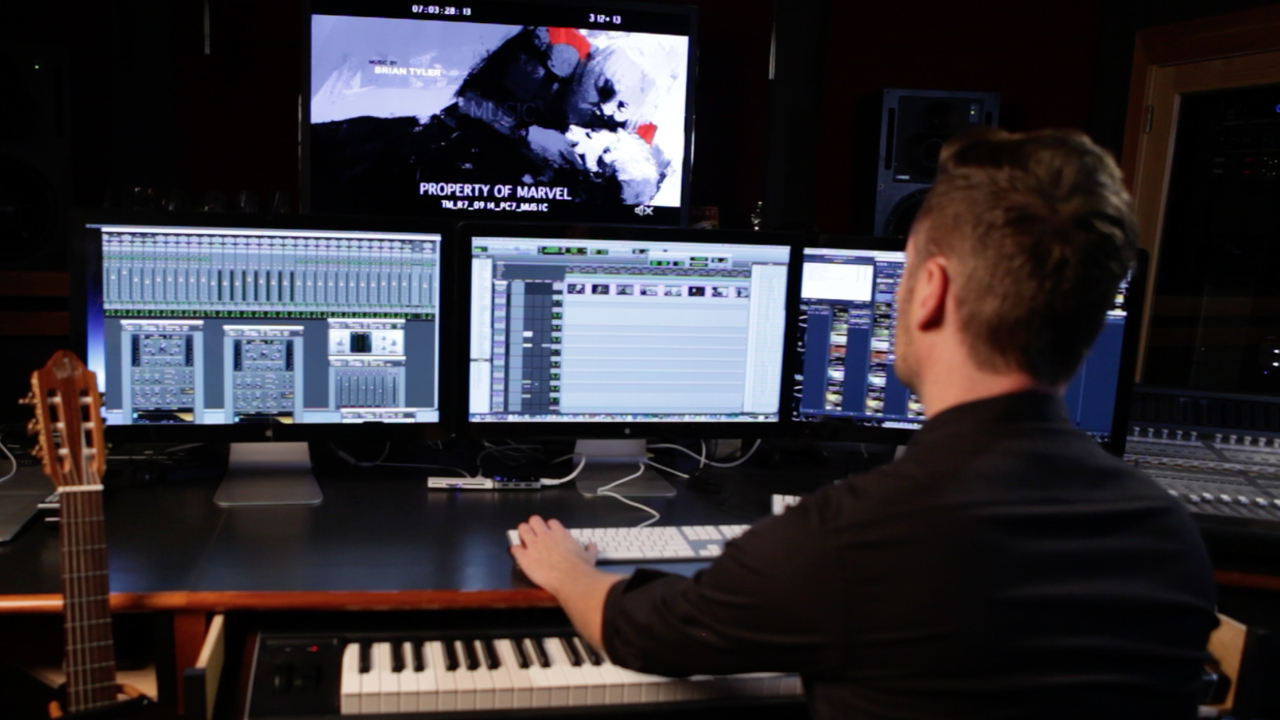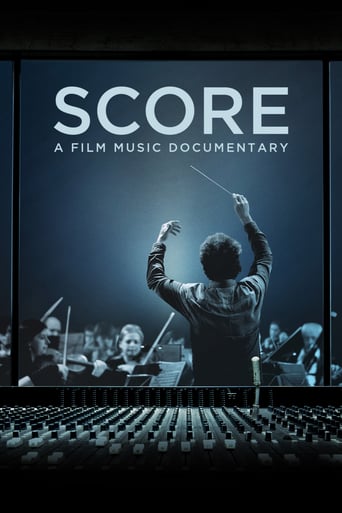

This Movie Can Only Be Described With One Word.
... View MoreStylish but barely mediocre overall
... View MoreIt's fun, it's light, [but] it has a hard time when its tries to get heavy.
... View MoreThis movie tries so hard to be funny, yet it falls flat every time. Just another example of recycled ideas repackaged with women in an attempt to appeal to a certain audience.
... View MoreI'm such a sucker for filmmaking docs, and this is a good one. Covering the entire history of composers scoring films, it's surprisingly comprehensive for how giant the topic is. Still, its scant 94 minute runtime did make me wish there was a "The Story of Film: An Odyssey" mini-series version of it. This will do for now.
... View More"Score: A Film Music Documentary" is an American 90-minute documentary movie from 2016, so now it's 2018 and this one really took way too long to be released here in Germany. But the viewing I was in was fairly full, so I'm glad it's getting the attention it deserves. The title summarizes pretty well what this one is about, namely the work of film composers. Early on we find out a bit about use of music and sound in very old films even back to the silent era. And some other stuff from way back like Psycho, E.T., Jaws, Vertigo etc. all films that are somewhat known for their music too. But most of the focus is on recent years. They got many many big name composers in here, almost too many, telling us about the subject and including personal anecdotes about their profession, which makes this an informative watch, but also a really entertaining one. And then of course you hear so much excellent music from start to finish, all the classics, that it is virtually impossible not to appreciate the music. I am for example not the greatest Star Wars or Indiana Jones fan, but I still like listening to the main themes of these movies. This film is very insightful and in-depth and I don't want to go deep into detail about what the interviewees had to say, but it was always interesting and I could have watched and listened for another half hour easily, perhaps even full hour. A really impressive way to launch one's career and most other directors could only have dreamed of such quality in a rookie project like Matt Schrader's here. Good to see it got some awards recognition at least, even if not at the big events. No idea how these go for forgettable stuff like "20 Feet from Stardom", but ignore this one here. Anyway, I myself am not a musician and I possess virtually no musical talent, so you don't need to play an instrument at all to appreciate this film. It's enough if you like music and if we are honest it's not a question of "if", but of which genres and artists are your biggest favorites. Schrader got all the big names in here and I don't want to list the names now as you can see these in the cast list, but a quick special thumbs-up to Alexandre Desplat who just won his second Golden Globe last night and he is also featured in here. Also an interesting reference to the new wave of music artists scoring film like Reznor/Ross did and had huge success with their work in that department. It is a very broad film, very relevant from the first second as we see on-set work, which is also important for score designers and it is not all just taking place inside in the recording studio or the orchestra hall. I think this is all that needs to be said. We truly should be thankful to these musicians for bringing us so many great moments and goosebumps like for example the main theme from Schindler's List. This is a definite contender for best documentary from 2016 and also top10 from all films released that year I guess. Even the seemingly random inclusions of Barrack Obama stealing songs and Paul Walker's death are elaborated on in a way that makes sense. I highly recommend seeing this one. It was a great watch.
... View MoreIf you love movies and love the music of the movies, then this film is for you! First of all, a lot of great music here and there as examples, and the interviews with top composers are very informative. There is a little bit of film history woven in, and of course film music history, too. This film really hits all the bases. I'm an indie filmmaker/composer in development myself, and already knew many of these things in the film, but the film was still very informative and inspiring to me! If you have any interest in movies and music, this film may just "suck you in" and keep you watching!It covers also about the psychology of music in film, why and how the music does what it does - to create or enhance a mood and help guide the audience towards the intended purpose of the filmmakers. And then there is also a lot of info about specific films and how they decided what kind of style and sound they wanted. And some info about the technical processes also, how they work in the recording sessions, and during editing of the movies.
... View More"Score" is not a bad overview of film music history and craft, albeit somewhat simplistic ... and some folks here, perhaps inadvertently, say things that are obvious or pretty stupid. Is there a single reference here to Erich Wolfgang Korngold? I think not. Instead Steiner and Newman get too much credit that symphonic sound in films forged in the 1930s. But what mostly irritated me was the film's way of equating of today's film composers with the masters of yesteryear. Most of them aren't worthy to shine their shoes.
... View More